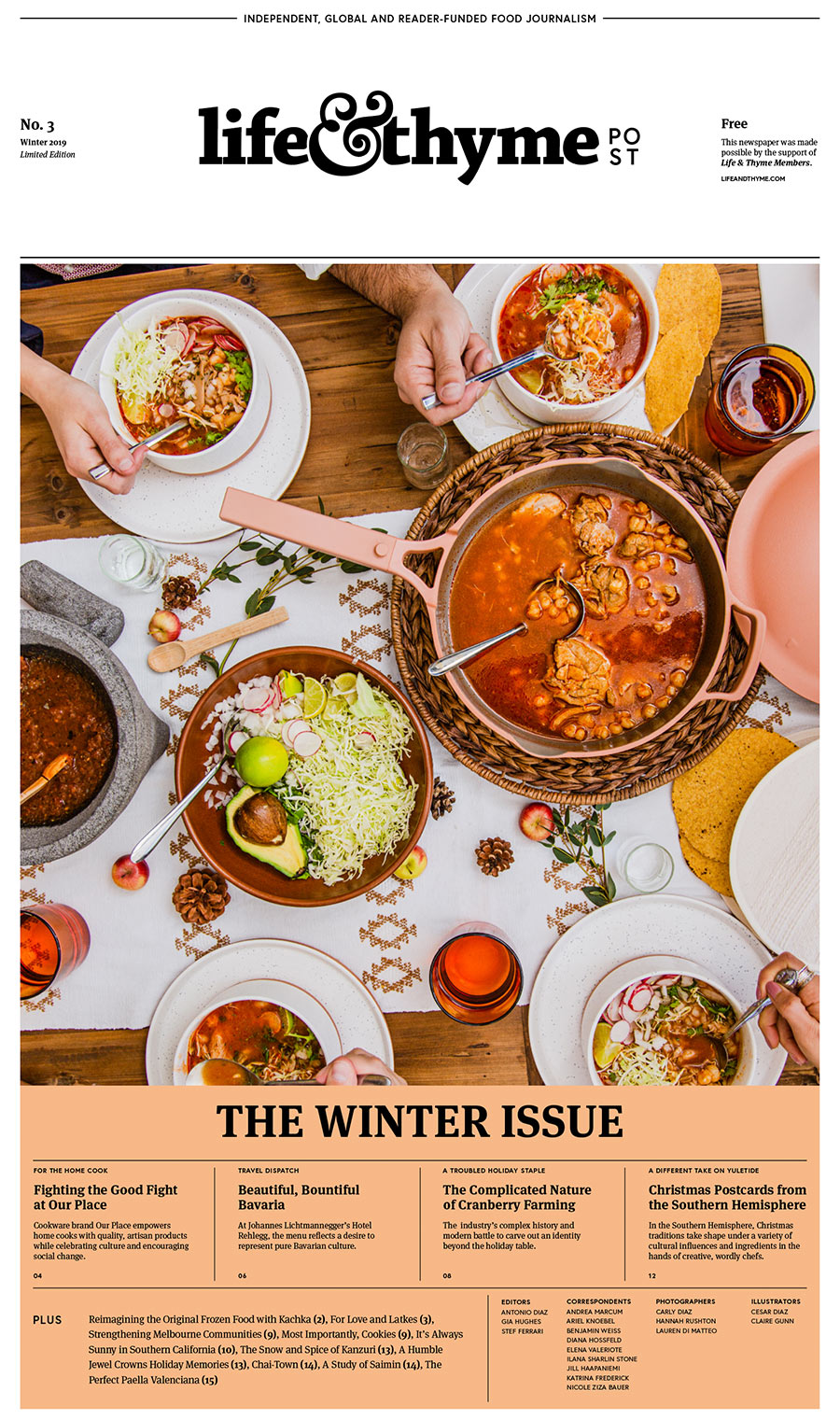
This story can also be found in The Winter Issue of Life & Thyme Post, our limited edition printed newspaper for Life & Thyme members.
Something surprising happens as you drive south out of Munich. Even on the cusp of winter, as the last autumn freckles cling to the trees, the land rolls beside you in a magnificent shade of green. In a tiny town that’s a cluster of alpine chalets, your stomach growls for the scent before your mind can register it: yeast. A mound of apple strudel. Square folds of cheese danish. A sugar-dusted krapfen doughnut. The sweet, pillowy confections of the bäckerei seem to say, Welcome to Bavaria. The land is plentiful here.
For many, Bavaria will call to mind three things: cream, pretzels and Oktoberfest. This is not a wrong assumption, but there’s a depth to those things that most could easily miss. Bavaria is the largest German state by land, encompassing over twenty-seven thousand square miles. Sitting just north of the Alps and bordered by the Czech Republic, Austria and Switzerland, Bavaria existed as an independent monarchy within the German Republic until 1918. Its residents often claim to be Bavarian ahead of being German with hospitality that’s just as insistent, and almost as inescapable as the portions.
In the tiny southern stem of Bavaria is the town of Berchtesgaden inside Berchtesgaden National Park. This is the core of the Bavarian spirit, a locale where the cuisine is an extension of nature itself.
“Many little men do many little things in many little places, [and] the world becomes a better place,” says Johannes Lichtmannegger, paraphrasing an African saying and effectively summing up the Berchtesgaden ethos. “That’s the idea. Everybody can do a little bit. If everybody does a little bit, it will be great.”
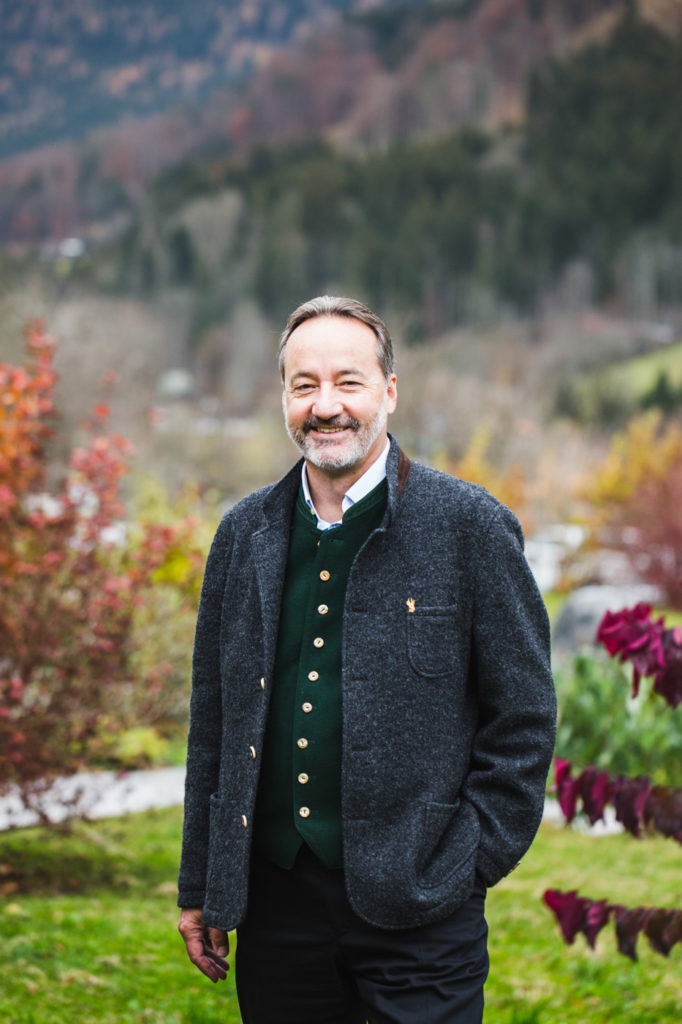
As the third-generation owner of Hotel Rehlegg, an eighty-seven-room hotel that sits fifteen minutes from Berchtesgaden in Ramsau, Lichtmannegger’s “little bit” has evolved in a way that magnifies the food that defines the region. At Hotel Rehlegg you won’t find beef from New Zealand or lamb shipped in from Scotland. Instead, the daily buffet offers options like turnip soup with lemongrass and ginger, Bavarian schnitzel with horseradish and vegetables, veal ragu with cream cabbage and bread dumplings, and even “grandmother’s fruit casserole” with vanilla sauce for dessert.
Prioritizing what travels the least distance, Lichtmannegger began asking local farmers what they can produce and how much they needed to sell to survive. Then, he bought exactly that. In the case of dairy, for example, (Bavaria is home to the majority of Germany’s dairy farms, over twenty-five thousand) the hotel uses six thousand packs of mountain butter, 6,500 liters of cream, 6,500 liters of milk, one ton of quark, and one ton of yogurt every year.
“The farmers work for this,” he says, motioning to a window in the hotel’s restaurant. It overlooks a sweeping view of the Alps. “[Our dairy products] come only from the mountain farmers here. We don’t take other milk products so we can make sure they earn enough for their work.”
Lichtmannegger’s hotel is now considered a clima-positive property, balancing its energy consumption through solar power, hydropower and reforestation to operate at a CO2-neutrality. Although he and his cousin, Franz, took over management in 2001, it wasn’t until 2012 that he was inspired to run things in a progressive manner. It was then, at a conference in Munich, that he learned about the industrial farming process of pigs. Germany ranks third behind China and the U.S. in global pig meat production.
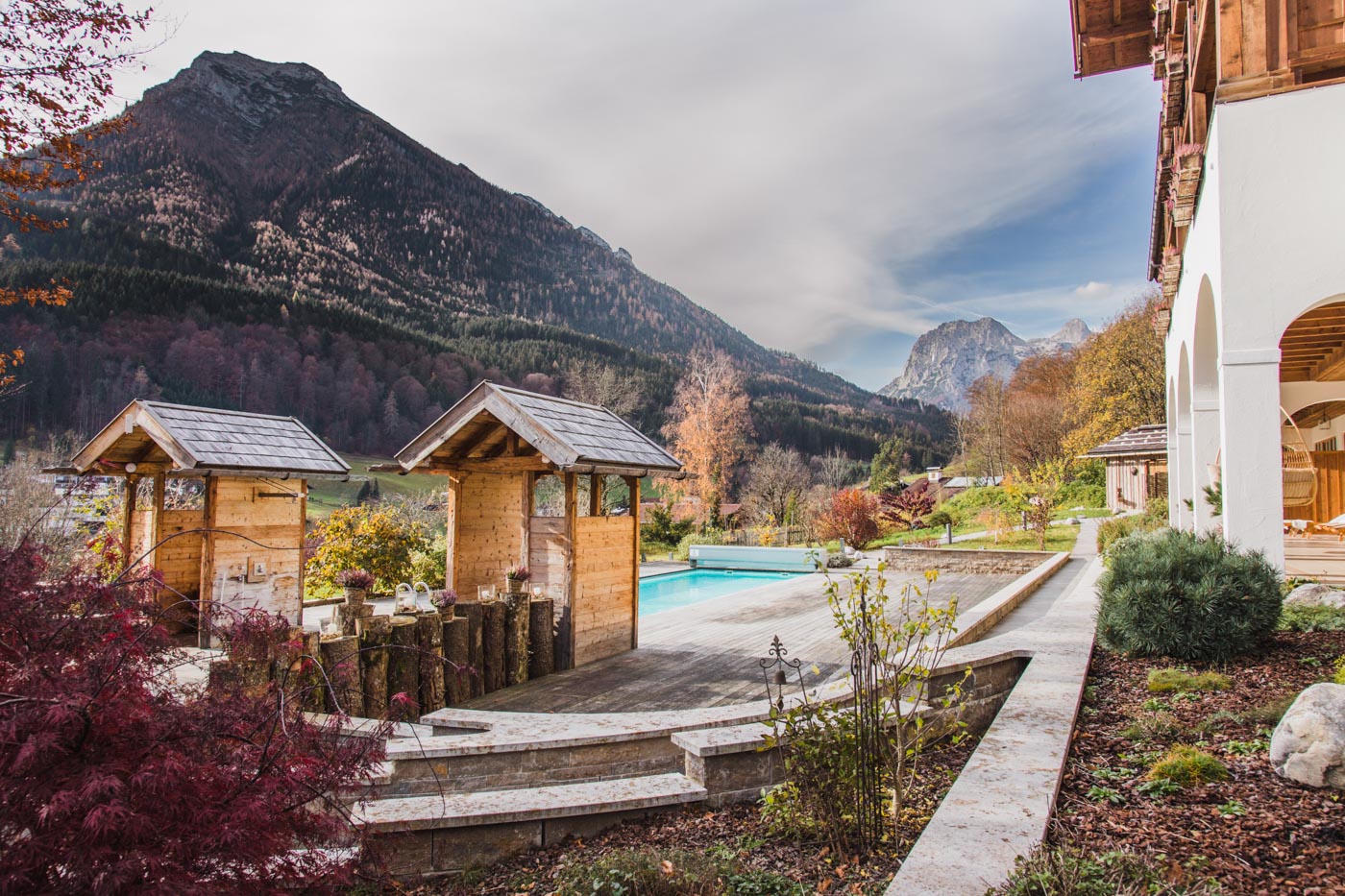
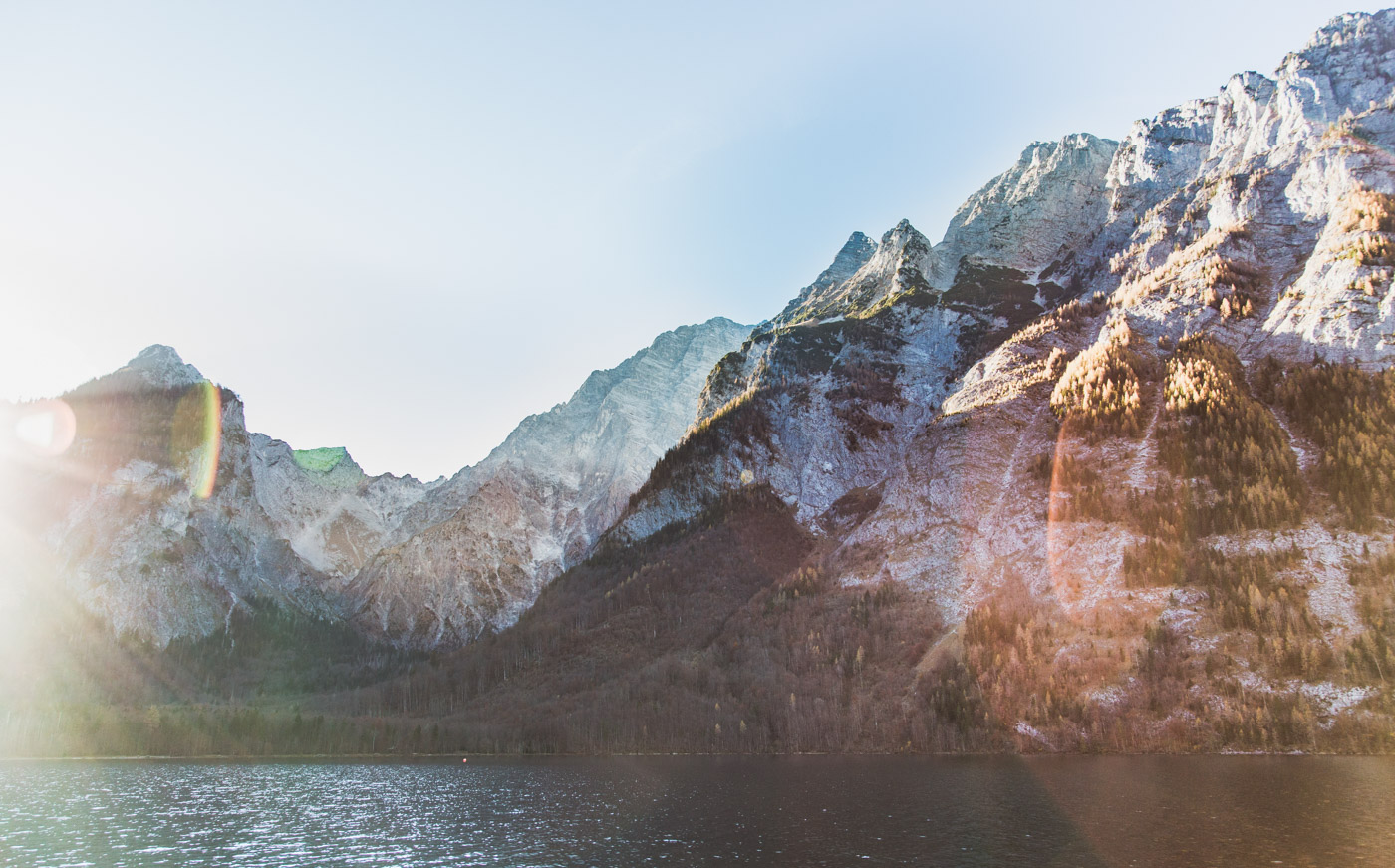
“It’s crazy what men are doing with these poor animals,” he sighs, explaining that the commercial feeding practice takes approximately eighteen to twenty weeks, growing a piglet from birth to a weight of nearly one hundred kilos (220 pounds). “Twenty weeks and [the pigs] have two more ribs and four meters. So we changed,” he says. “The pig taught us to think another way.”
Lichtmannegger now raises black alpine pig, a dark-skinned breed with dark fur that enables survival in the cold mountain weather. Extinct in the area since 1907, he sourced two females and one male from the Italian organization Pro Patrimonio Montano, which protects native alpine species. Today, Lichtmannegger has eighty black pigs “that are living outside and [have] a good life.” Their lardo, served simply as a thin ribbon of fat stretched over a slice of traditional Bavarian brown bread, is considered a Rehlegg specialty.
Sitting down to lunch with Lichtmannegger is an education on Bavarian dining. The meal traditionally starts with weisswurst. A ceramic bowl filled with warm water and cream-colored links is placed on the table. Always eaten before noon, the weisswurst at Hotel Rehlegg are thick veal and pork sausages flecked with parsley and served with housemade sweet mustard and a soft pretzel from Bäckerei Niedermayer, which supplies all of the bread for the hotel.
“This is from the local butcher. Every morning he makes it fresh,” Lichtmannegger explains, a weisswurst speared through the tip of his fork. He slices a warm sausage down the center and scoops out each half from its casing. “Know everything that you eat. In my hotel, I know what’s in this,” he says. “That’s important for me.”
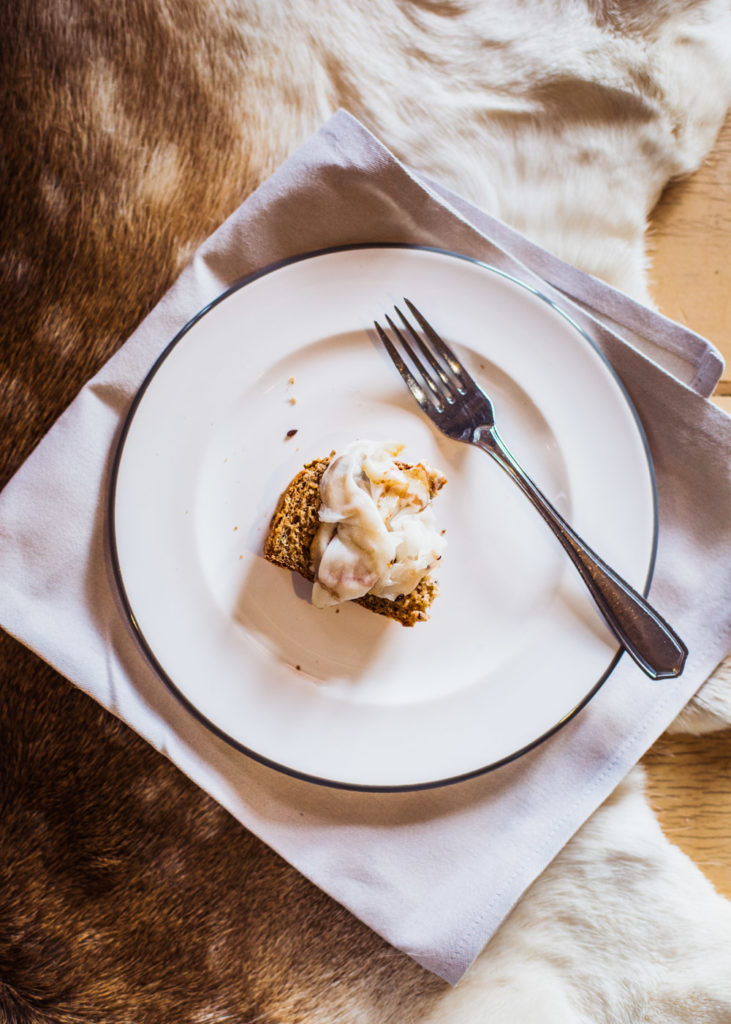
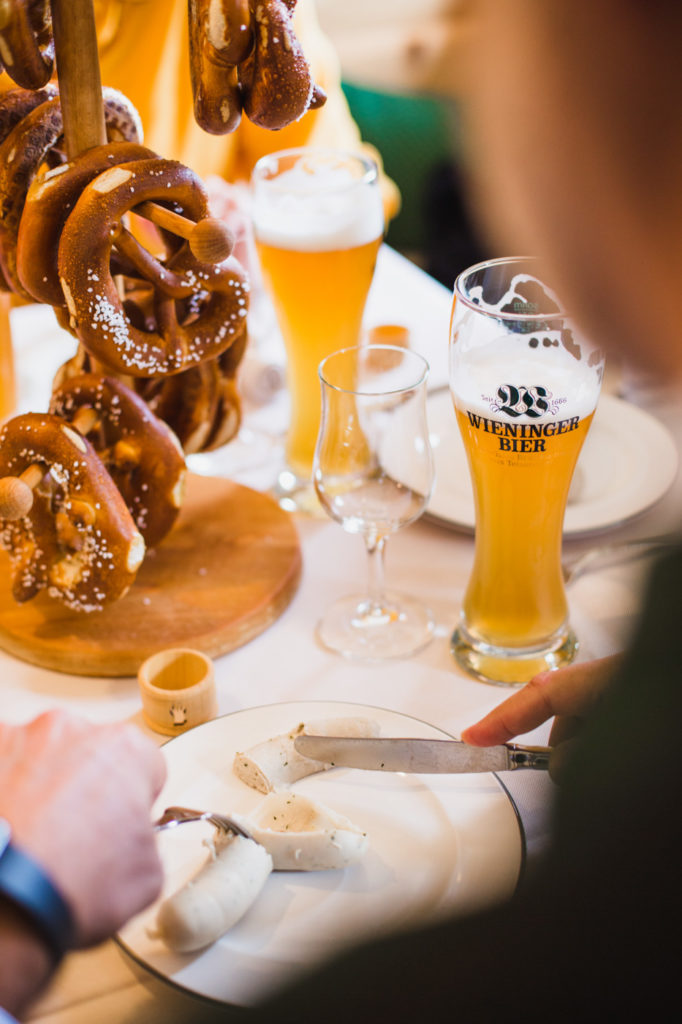
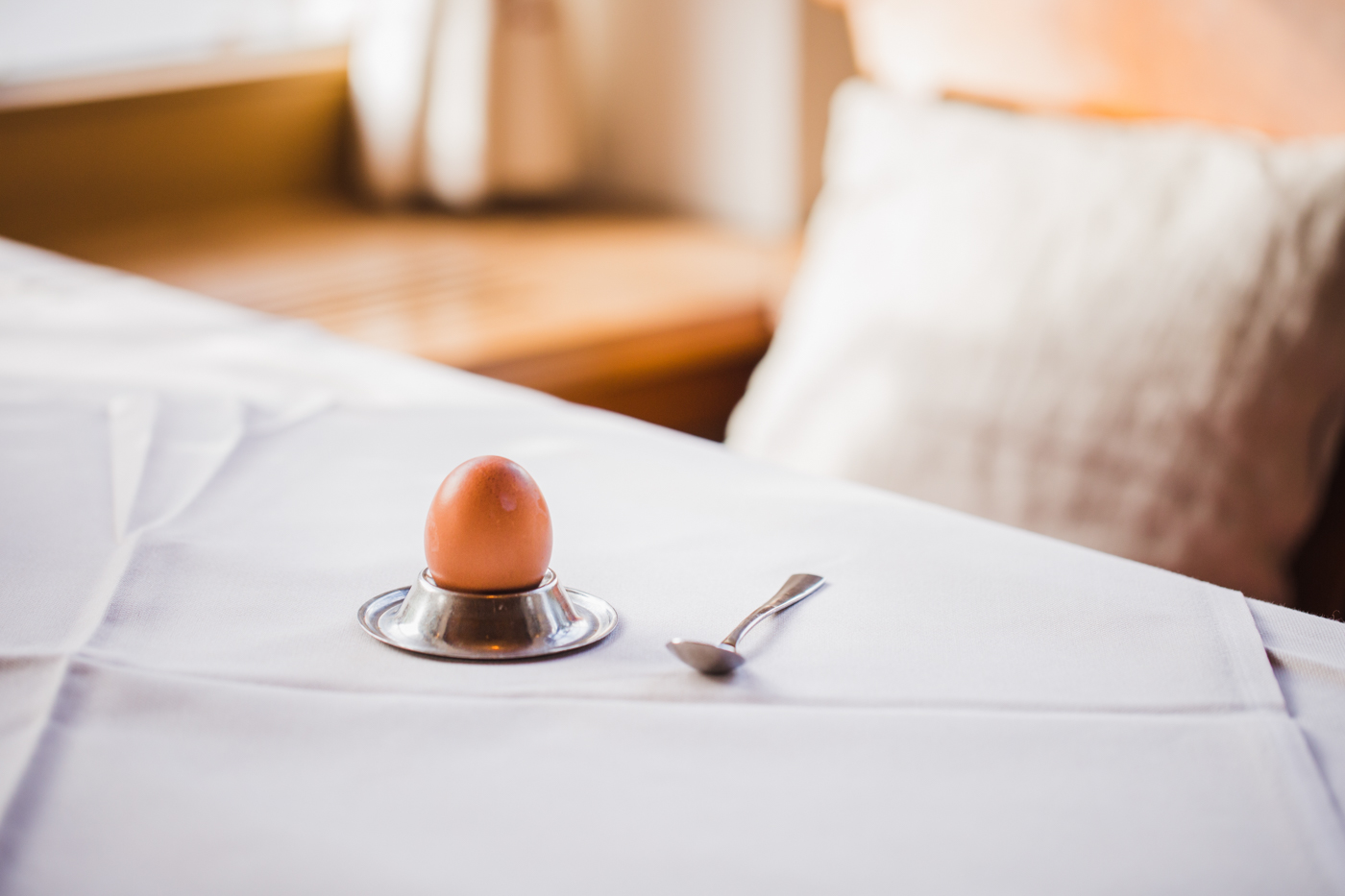
Sourcing all of his lamb meat from Ramsau, wild venison from the national park, and fish from nearby Lake Konigssee, Lichtmannegger’s fellow producers reflect just as much of a commitment to the area. Renate Aschauer, who provides the lamb, is one of them. She has been breeding Alpine Stone sheep a short drive from Hotel Rehlegg since 1996. Once indigenous to the Bavarian Eastern Alps, Alpine Stone sheep have steadily declined in population since 1960, supplanted by other species to the point where they’ve been placed on the “Red List” of the Society for the Conservation of Old and Endangered Domestic Breeds. Aschauer raises her sheep for both wool and meat and has helped to increase the population from sixty animals in 1995 to nearly seven hundred in 2013.
“More and more people are beginning to value regional products, visitors and locals alike,” Aschauer says. “Berchtesgaden cuisine is Bavarian cuisine.”
That goes for the drinks as well. Assuming one of the highest points in Berchtesgaden, Grassl is a distillery established in 1692 that makes over thirty different spirits and liqueurs. It’s known most for its gentian schnapps; the herb root is uniquely harvested directly from the national forest and distilled at one of five different mountain cottages. The highest cottage, Funtensee, is named for the lake it sits beside. Located at an elevation of over six thousand feet, the distiller must hike to it on foot where only a helicopter has access to bring supplies. Lake Funtensee is also Germany’s coldest point, clocking a record of -50.6 degrees Fahrenheit in 2001.
“We are the only company allowed to dig up roots in a preserved national park,” Grassl’s Executive Partner Florian Beierl explains. “The rights have been granted for over three hundred years. Because the [original] family did it in such a way that [the gentian] was never extinct, we retained those rights.”
While Grassl uses conventionally-grown gentian for the bulk of its products, its distinct cottage distillations are hand-harvested from the alpine forest. It takes up to seven years for the roots to mature; distillers pick from rotating forest sites every few years. After fermentation and distillation using pure mountain spring water, the gentian spirit is left to age in ashwood casks for another five to seven years. This happens in caves deep beneath Berchtesgaden, creating a final product that’s a clean, bitter smack of earth, reflecting Bavaria—quite literally—from top to the very bottom.
“People who visit this region are very open to nature and tradition,” Beierl says, noting Grassl only produces in Berchtesgaden and is available within Germany. “Our products have become a link. People buy something from here. Then they go home to Hamburg or Dusseldorf and enjoy the product. It brings them back to the Alps.”
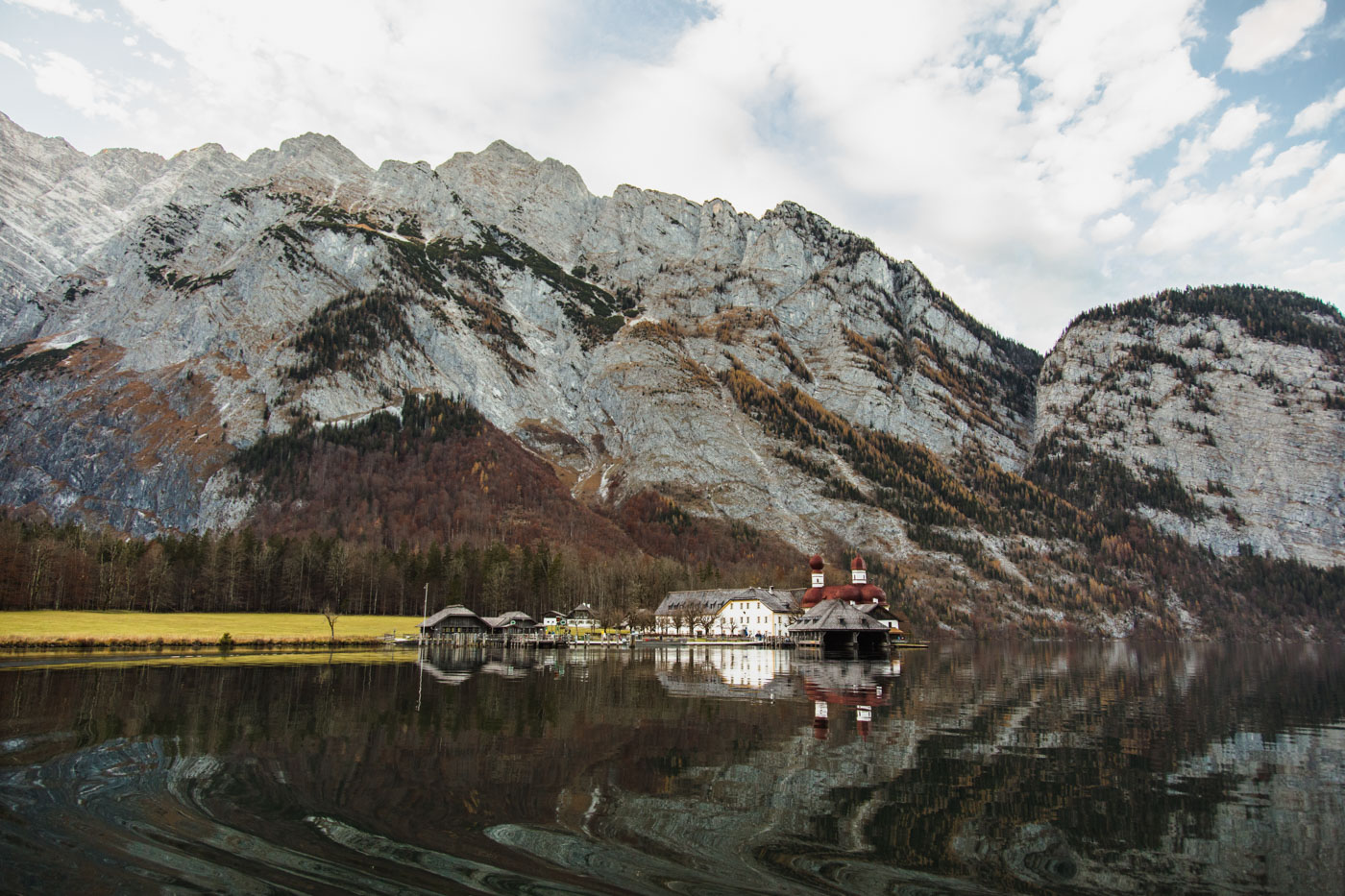
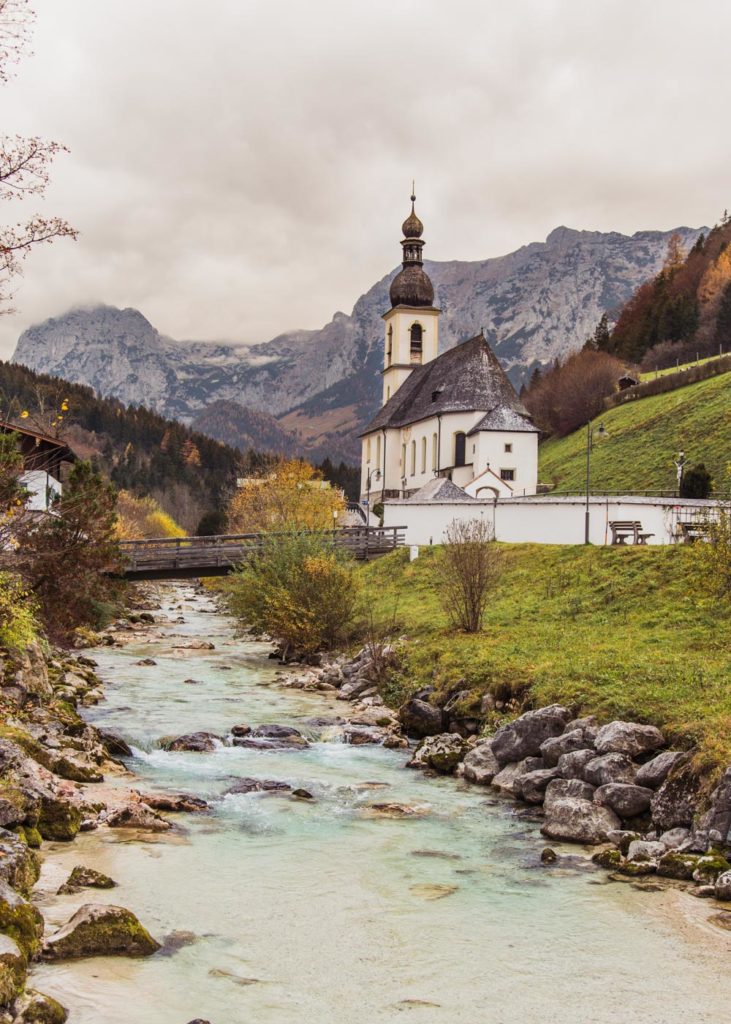
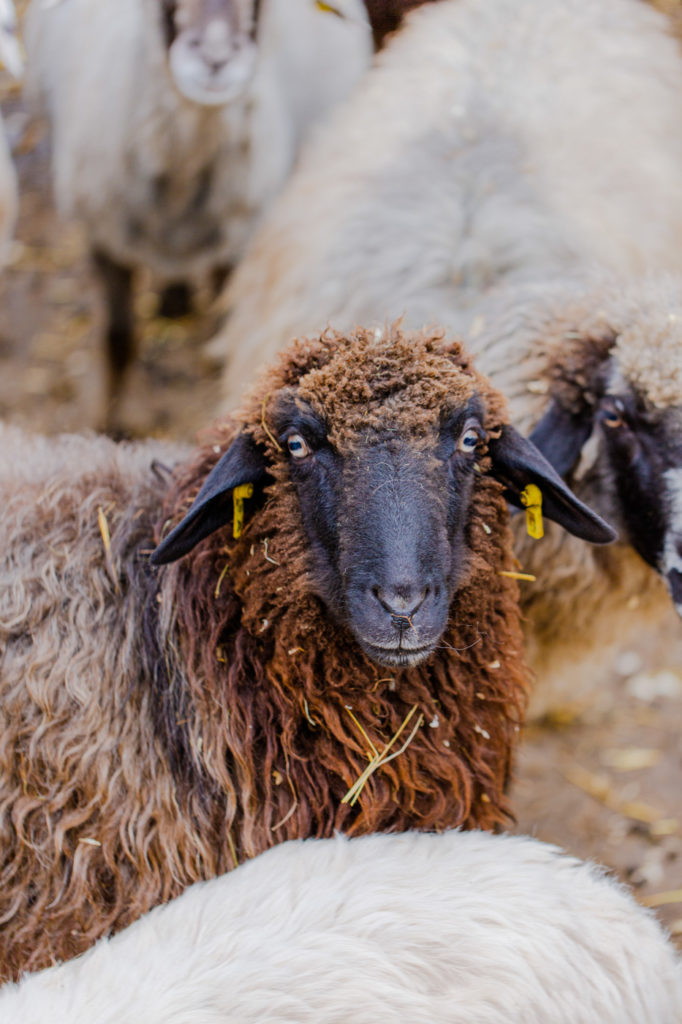
___
At Hotel Rehlegg, Lichtmannegger continues with lunch, finishing off the sausages with a pairing of Rehbock, Rehlegg’s limited edition doppelbock beer produced for the hotel’s centennial birthday in 2017. It was made as a happy accident when a four hundred-year-old wheat variety failed to have enough gluten for bread. It’s another example, he says, of what can happen when you look at the possibilities around you.
Space is cleared for the most surprising flavor of Berchtesgaden specifically available at the hotel: a tray of caviar. This Rehluga caviar is produced in partnership with Daliborka Savanovic and Nicole Bayrhammer, a mother-daughter team of fisherwomen who raise sturgeon in the local waters of Lake Konigssee.
“You can’t buy this quality in Russia,” Lichtmannegger explains. “It’s the same fish, but very, very good water.” Located in the heart of Berchtesgaden National Park, just five miles from the hotel, Lake Konigssee is a narrow strip of turquoise water framed by the mountains’ dramatic peaks. The iconic seventeenth-century church, St. Bartholomew, pinpoints its Western edge neighbored by a single smokehouse where char, whitefish and trout have been preserved in the same fashion for four hundred years. It’s the water of this lake, combined with water sourced from Austria, that flows into the fish basin where the sturgeon are raised.
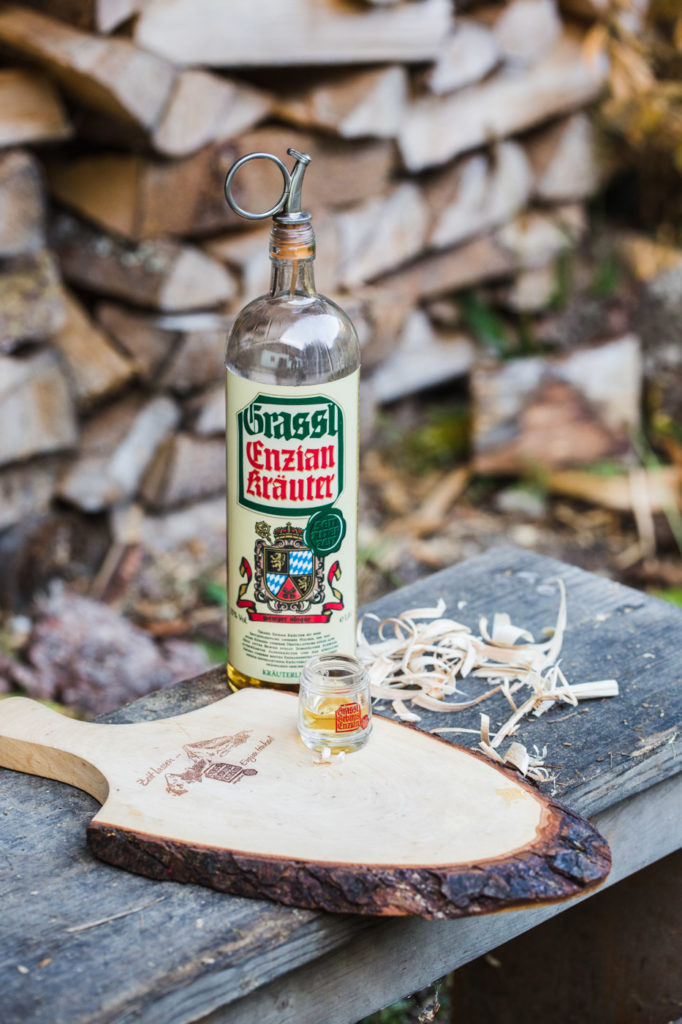
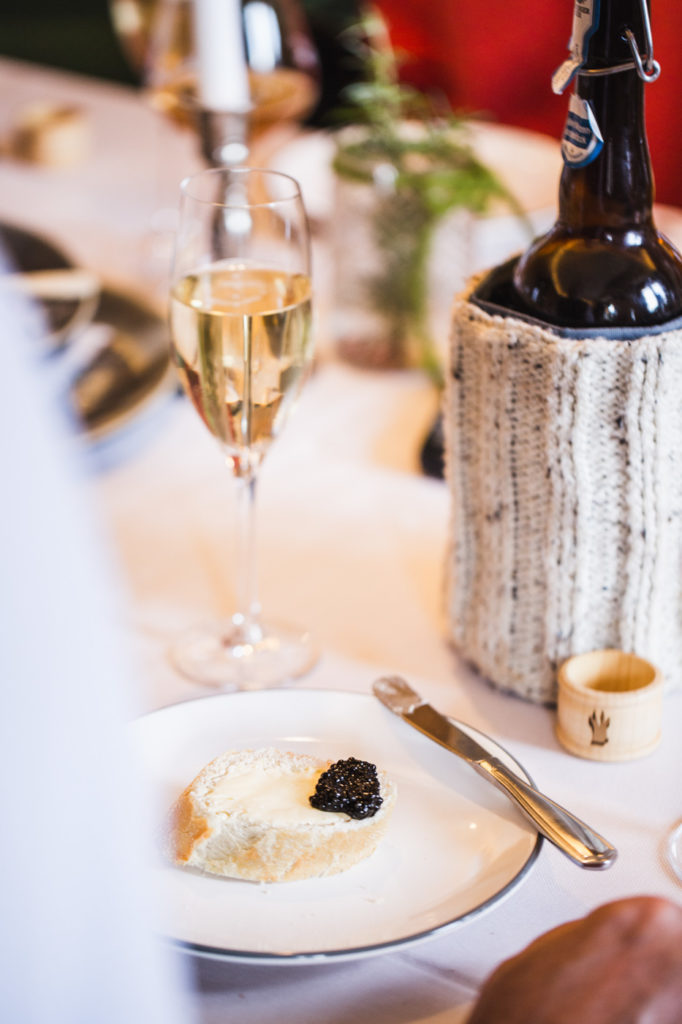
“The best way to eat the caviar is fresh white bread, butter from here, and nothing else,” beams Lichtmannegger. He cites the importance of using every part of the sturgeon. “When we buy the caviar, we also buy the whole fish. We can take the meat for our buffets and restaurant. [We do this for] every animal.”
As you float along Lake Konigssee, where the sky is mirrored on the surface of the water, you might find yourself wondering exactly how to take this all in, this place where endangered sheep graze, extinct pigs roam, and wild gentian grows. How to appreciate every part?
In short: You can’t. Like any great meal, you won’t be able to isolate the single reason why Bavaria is a tastebud’s holiday. You just dive in, and eat.





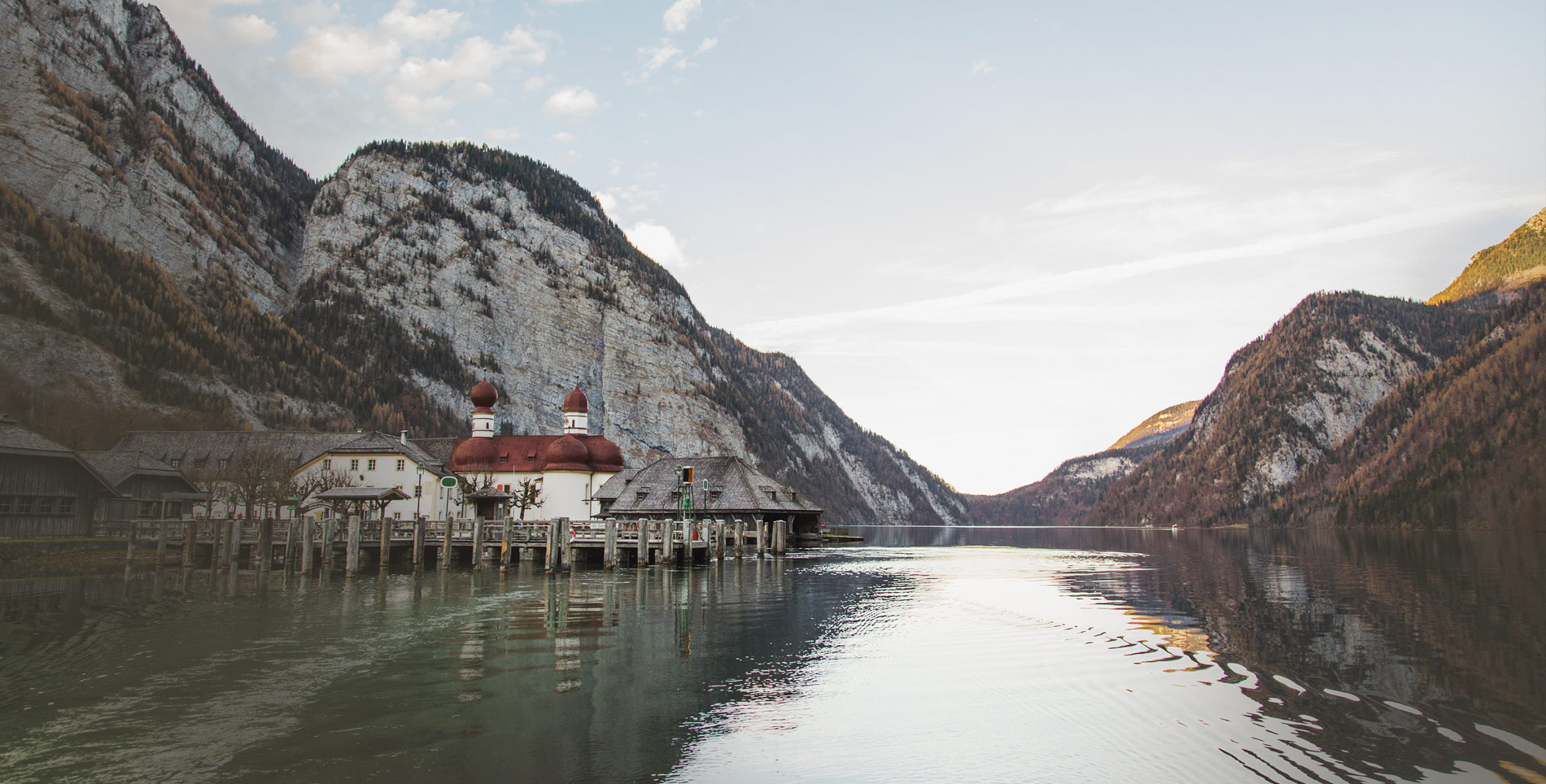

Our comments section is for members only.
Join today to gain exclusive access.